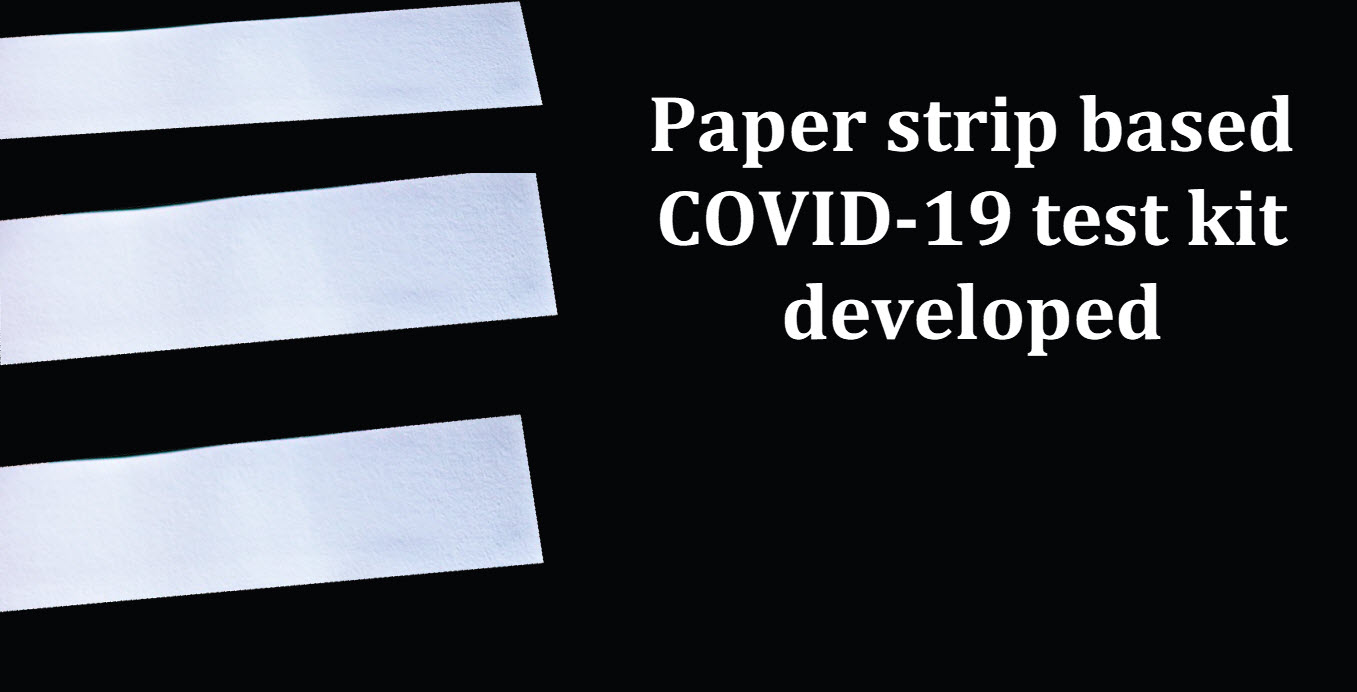
Scientists from the Council of Scientific and Industrial Research (CSIR) have found great success in developing a new kit for rapid testing of Covid-19. It is a paper-strip based test kit developed by scientists of CSIR-affiliated Institute of Genomics and Integrative Biology (IGIB), New Delhi, to detect infection of Covid-19 in a short time.
This paper strip-based test kit has been developed by a team led by Dr. Sauvik Maity, scientist at IGIB and Dr. Debajyoti Chakraborty. Current test of COVID-19 require 8-10 hours for detection of novel corona virus. But this kit can detect viral RNA of the novel corona virus (SARS-COV-2) in less than an hour. Scientists say this paper-strip kit is much cheaper than commonly used testing methods and may help meet the challenge of large-scale corona testing once it is developed.
IGIB scientist Dr. Debjyoti Chakraborty told India Science Wire that "this paper-kit used state-of-the-art technique of gene-editing crisper-cas-9 to identify the genomic sequence of the corona virus in susceptible individuals of infection." One of the features of this kit is that it can be used extensively to detect the rapidly spreading Covid-19 epidemic.
Dr. Debjyoti Chakraborty said, "The validity of this test kit is currently being tested, after its completion it will be used for testing new corona virus. The introduction of this kit is currently used to test the virus." Expensive real-time PCR machines used will not be needed. The cost of testing comes from around Rs 500 using the new kit."
IGIB scientists said that they have been working on this tool for almost two years. But, in late January, when the corona outbreak in China was at its peak, they began testing to see how effective this kit could be in detecting the Covid-19. IGIB scientists had been working day and night for the last two months to reach a conclusion in this exercise.
CSIR Director General Dr. Shekhar C. Mande has said - “The primary results associated with the development of this kit are encouraging. However, the primary results are still seen on limited samples and are being tested extensively. It will also be tested on samples sourced from other countries. Regulatory bodies may get permission for its use soon, after which this kit can be used for testing. ”













